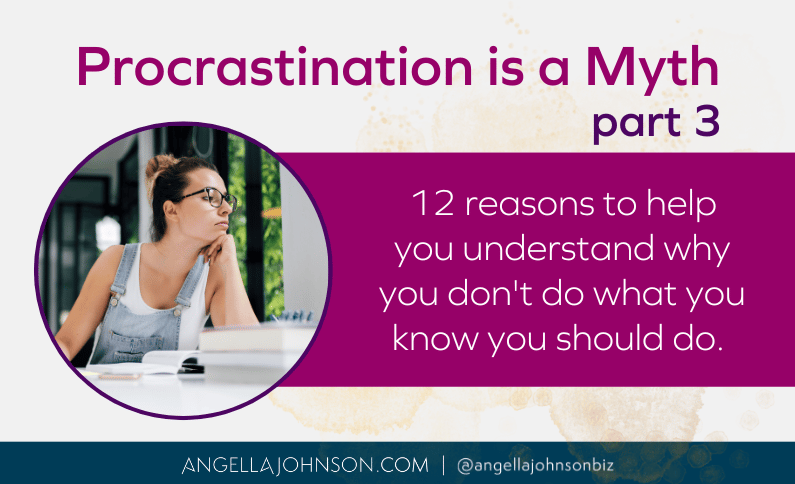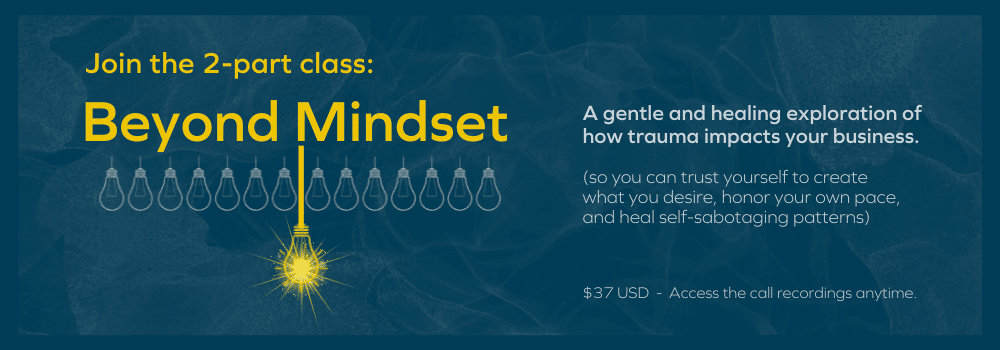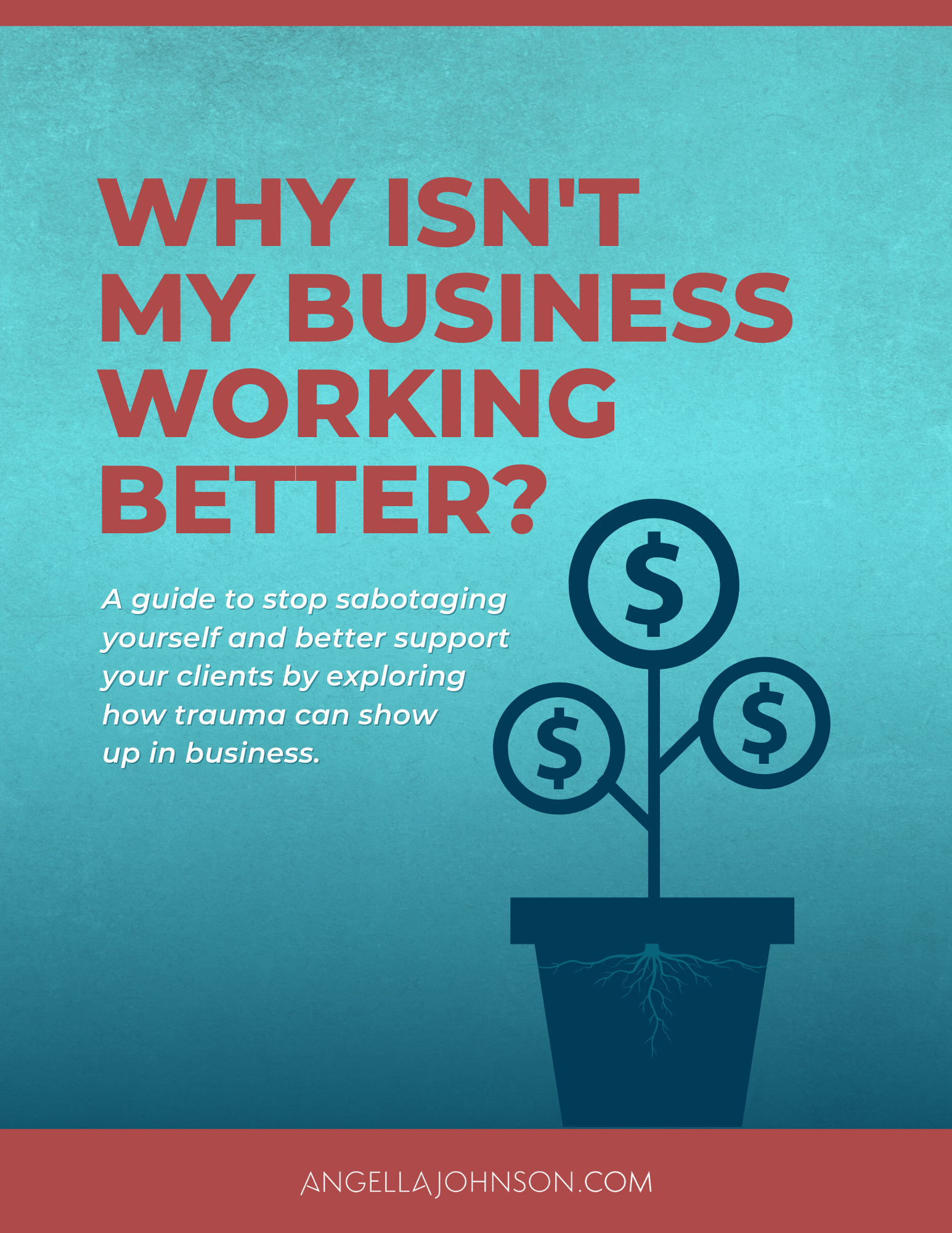Now that you have some insight into what could be behind your procrastination, what do you do about it?
This is a 3-part blog series:
Part 1: What if Procrastination is a myth?
Part 2: 12 reasons to help you understand why you don’t do what you know you should do.
(You’re here) Part 3: What do we do about it?
If you have goals that you aren’t reaching, honesty and self-compassion are the first steps to re-assess what you desire and what your capacity is.
If you want something done, you have three options:
- You do it
- You have someone else to do it
- Or you accept that it doesn’t get done.
Are there really any other options?
There’s not some magical thinking that you have to master in order for something to get done – and I’m all for magic, energy, spiritual truths, and all things woo. I’m also super practical.
What do we do when we are procrastinating?
The real question I’d love to focus on is this:
What must we let go of to heal our relationship with the lie that what we produce equals our value?
Running a business in a society where phrases like, “If you’re not growing, you’re dying,” are fueling the productivity hacks that get turned into self-help books and podcasts.
If this is what we see kind of messaging all of the time, it’s so easy to think that you’re behind or not doing enough.
Here is what I recommend to get on track with what truly fuels your soul and your bank account, because we gotta talk about money, too.
- Get honest with yourself. Even more honest. And even more honest. Look at your goals and ask yourself if this truly matters to you.
- Give yourself permission to be a work in progress as you navigate what it’s really going to take to accomplish your goals.
- Give yourself more time. If you’re tempted to launch your program or product in 10 days, give yourself double the time if not a couple of months.
- Be real with what you desire.
- Be compassionate about what your capacity is and let go of the race.
- Let go of the income goals.
Getting honest.
This is not a one-time thing. This is a continual process that continually evolves. What matters to you today may not be the same as you evolve but damn, we try to hang onto those dreams don’t we?
Giving Yourself Permission
What support do you require with the unique way in which your brain processes information?
What support does your body require?
What space does your schedule require?
What pace do you have the capacity for?
This process will likely question your identity – who you think you are and what you’ve been told you should be. Be patient as you let go of these old parts of you.
Give Yourself More Time
This will feel really uncomfortable to the part of you that already feels behind. If you’re not so good at being patient with yourself, this will stretch you in all sorts of ways and what you’ll find is you don’t need the pressure of time to actualize your goals. You start ebbing and flowing with your natural rhythm. You start trusting yourself and your timing.
Be Real with What You Desire
When you let go of other people’s formulas and the shoulds you’ve embraced as your own, you’re left with a blank canvas. As you approach that blank canvas, it’s tempting to put what’s familiar – the default – the shoulds. Be open to just being with the blank canvas just a tad longer so what you truly desire emerges and you’ll know what is true for you.
Be Compassionate with Your Capacity
One of the most frustrating parts of this process is when healing my body and facing that despite my best efforts, I have a human body that needs support and rest. The same goes for mental health.
This all makes sense because the examples of success aren’t usually talking about their mental illness, neurodivergence, or chronic health challenges. That’s the power of sharing our stories. When we normalize these conversations, we see that we are not alone.
Let Go of the Income Goals
Wait, what?
Seriously, let go. Be very clear about what you need to cover your expenses and life and let go of the “go big or go home” energy. When you’re being honest with what you desire and your capacity, you’ll find ways to create that resonate even more than chasing an income goal.
Conclusion:
I hope you got an ah-ha or two from this 3-part blog series.
Imagine how much mental capacity could open up if more people stopped judging themselves and had the support to really understand what’s going on. Knowing that we should do something, but then not doing it time and time again, is incredibly frustrating and disheartening. But, when we see what’s underneath that pattern, we can do something about it.
Resource:
If you can relate to the Trauma response as to why you’re procrastinating, check out this 2-part class for $37 USD.



